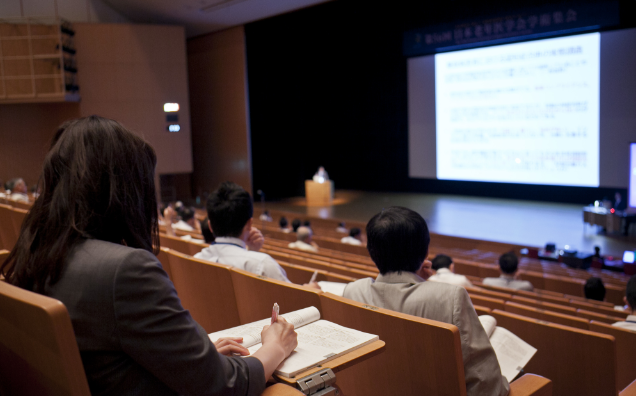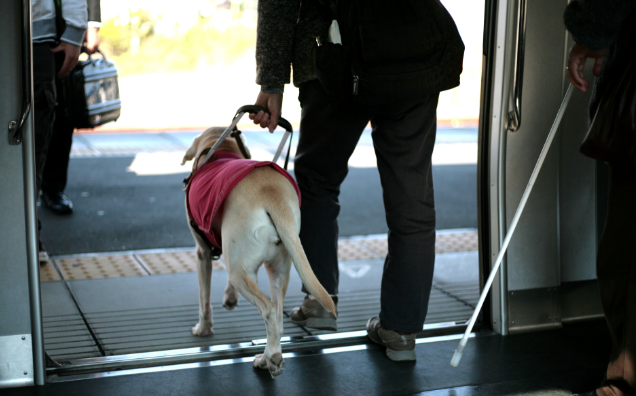- TOP >
- Efforts of Ebisuya's Asakusa branch
Efforts of Ebisuya's Asakusa branch 1-34-2 Asakusa, Taito-ku, Tokyo
In particular, we want people who don't think they can ride rickshaws to give them a try
We actively call out to wheelchair users and other disabled people to give them a chance to enjoy wheelchair sightseeing.
There are a lot of rickshaws running in Asakusa, and they are used by many tourists. Kosuke Kajiwara, the head of Ebisuya's Asakusa branch and chairman of the Asakusa Rickshaw Driver Union —which currently has 20 member companies—talked to us about this business.
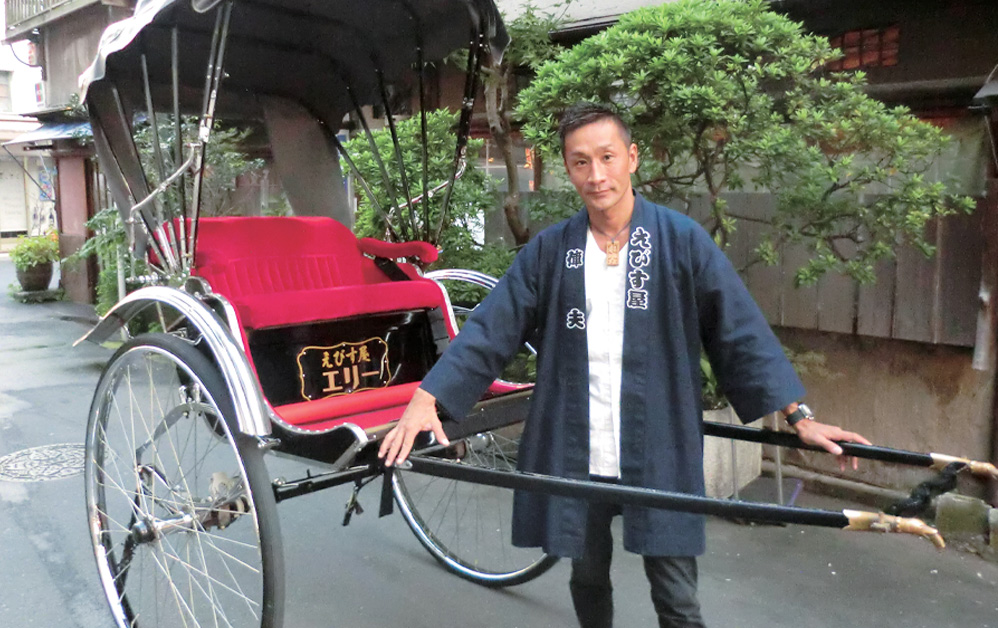
Demanding hiring requirements
Ebisuya currently employs around 80 rickshaw drivers. Every month, we receive applications from around 6 to people, but only one or two of them are hired. The average age of our rickshaw drivers is 23 to 24, and the oldest drivers working for the Asakusa branch are around 32 or 33 years old, while veterans who are as old as 50 work in Kyoto. To work for Ebisuya, it is necessary to be able to speak English, and we emphasize both physical strength and communication ability.
After someone is hired, . After someone is hired, they undergo 14 days of training, and we sometimes end up letting them go if the way they pull rickshaws makes customers uneasy or they have poor communication ability.
We do have recommended courses depending on the length of the trip, but there are not really any predetermined courses. In the case of recommended courses, our rickshaw drivers also act as guides, providing information on photo spots, etc. In addition, our rickshaws can be used not only for sightseeing but also for simple transportation, so we recommend them for people who have trouble walking as well.
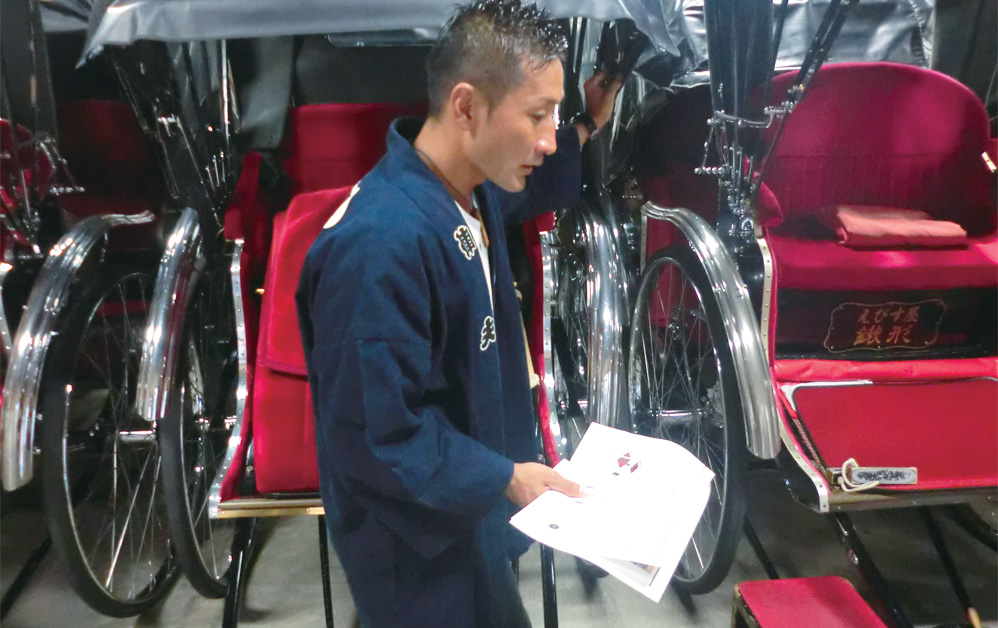
Helping disabled people use rickshaws, too
Although we refuse to let pregnant women ride our rickshaws before their 16th week due to safety concerns, we would like everyone else to try riding our rickshaws. We also actively call out to wheelchair users, sometimes working in teams of three or four to give them rides. In addition, we regularly transport special-school students. In some cases, we encounter people who are unable to sit down, but our staff members provide support until the people assisting them are seated. In the case of hearing-impaired people, we can also assign staff members who are fluent in sign language if there is a reservation. If such staff members are not available, we use sketchbooks, etc. to provide guidance.
Whenever disabled people use our rickshaws, we always ask them what kind of assistance we should provide. For example, in cases where it is necessary to carry a customer like a princess, we are careful to confirm that there is no problem with the way we lift the customer on to the rickshaw. In addition, we always have one of our company's approximately 10 managers handle cases like this.
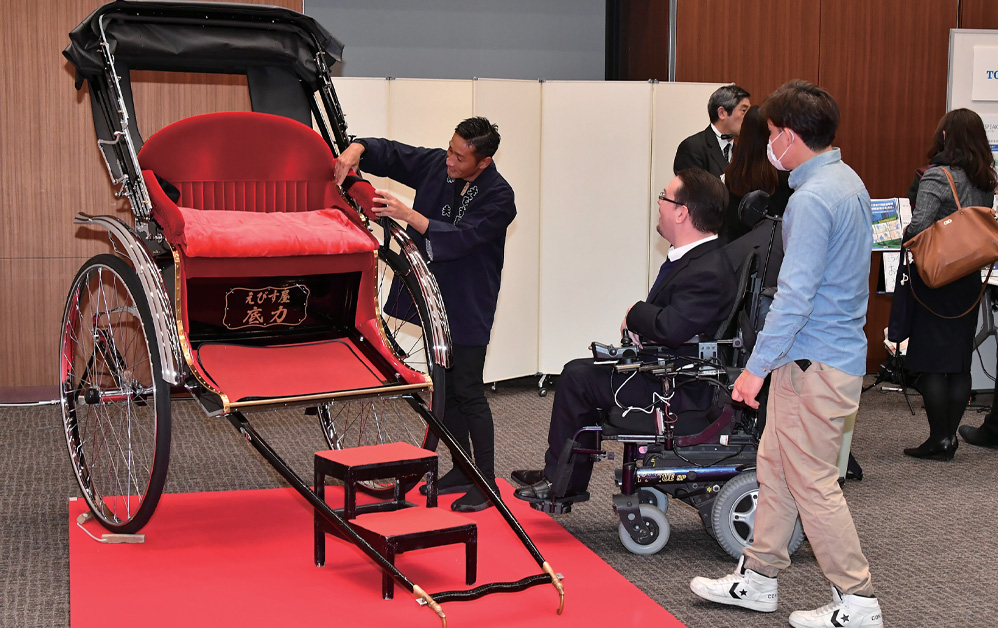 Exhibition at the Accessible Tourism Promotion Symposium
Exhibition at the Accessible Tourism Promotion Symposium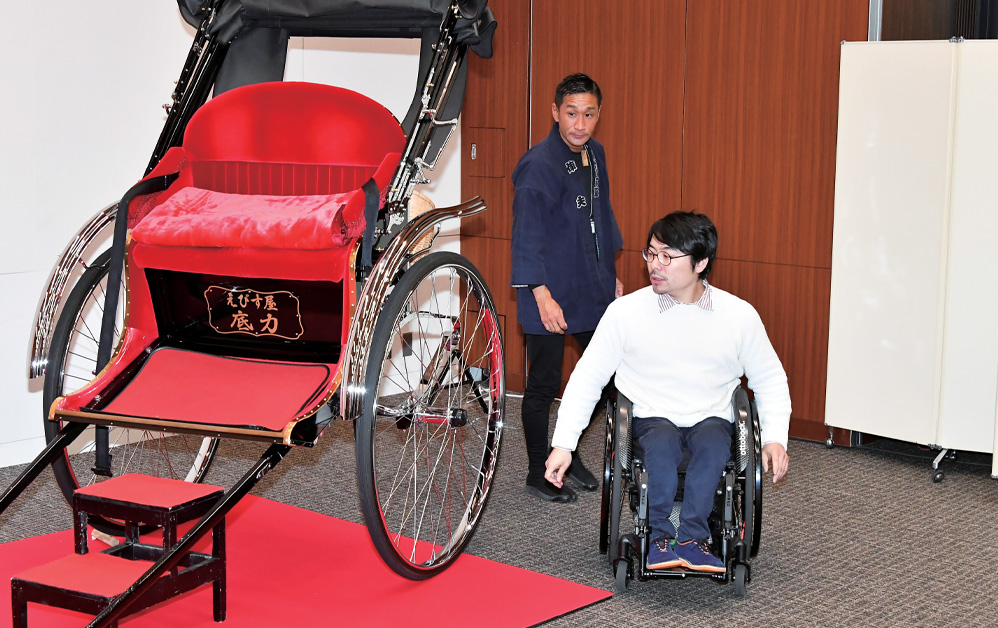 Exhibition at the Accessible Tourism Promotion Symposium
Exhibition at the Accessible Tourism Promotion Symposium
Seeing the smiles of customers who have ridden our rickshaws makes us happy
To share information between rickshaw drivers, Ebisuya has organized five teams, which meet once per month. Each team has a leader, and points that arise at leader meetings are shared at team meetings. In addition, Asakusa has a rickshaw driver union, which makes decisions regarding where customers should be picked up, etc. and shares information on good manners and other issues related to maintaining high rickshaw quality in Asakusa.
I mentioned that we have disabled people ride our rickshaws, but the customers who are the most convinced that riding a rickshaw is out of the question for them are the ones who smile the most when they do ride one. In particular, most wheelchair users normally have to view the city from a specific height, but riding a rickshaw gives them a much higher perspective and lets them see the sights in a new way. Most rickshaw drivers like people and want to make them happy, so seeing the smiles of our customers delights us as well. The people who have more or less given up on ever riding a rickshaw are the ones who smile the most when they are finally able to ride one, so we do our best to come up with ways to give such people this opportunity. For example, collapsible wheelchairs can be secured to rickshaws to transport them with the customer, and our staff can send larger wheelchairs ahead to the spot where the customer gets off the rickshaw.
Building a better relationship between elderly people, disabled people, and rickshaws
Rickshaws lean quite a bit when stopped. As a result, elderly people and others with weak cores sometimes find rickshaws difficult to use when getting on or off them. We provide step ladders and have our staff members lend a hand and provide support, but we would like to find a way to make our rickshaws a little easier to ride. In addition, we want to think about courses that visually impaired people could enjoy as well as how to more effectively provide explanations to hearing-impaired people.
Even now, we actively call out to wheelchair users and other disabled people. We want people who normally have to deal with various restrictions in particular to enjoy sightseeing on rickshaws. Therefore, please do not hesitate to talk to us due to a concern that getting on or off a rickshaw will be difficult. Our rickshaw drivers have walkie-talkies, and they can call the office to have assistance staff members come out. Sometimes, we even have teams of four or five people help customers get on our rickshaws. In addition, if a customer makes a reservation, we will do whatever we can to figure out how we can help them even if they are disabled. In the end, profits and losses aren't what make us happy... We only want to be useful to people and make them smile.
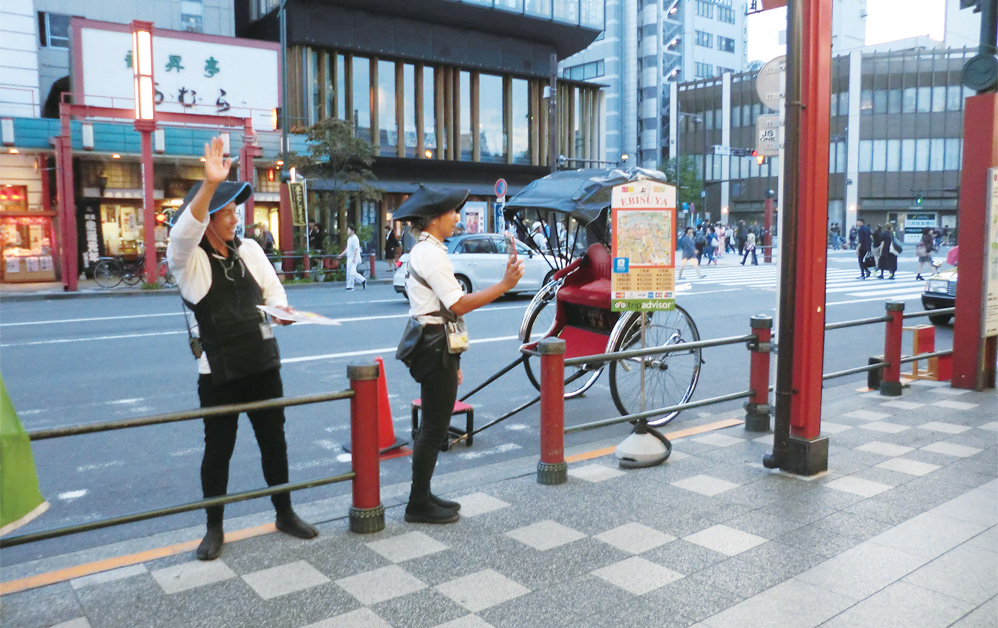
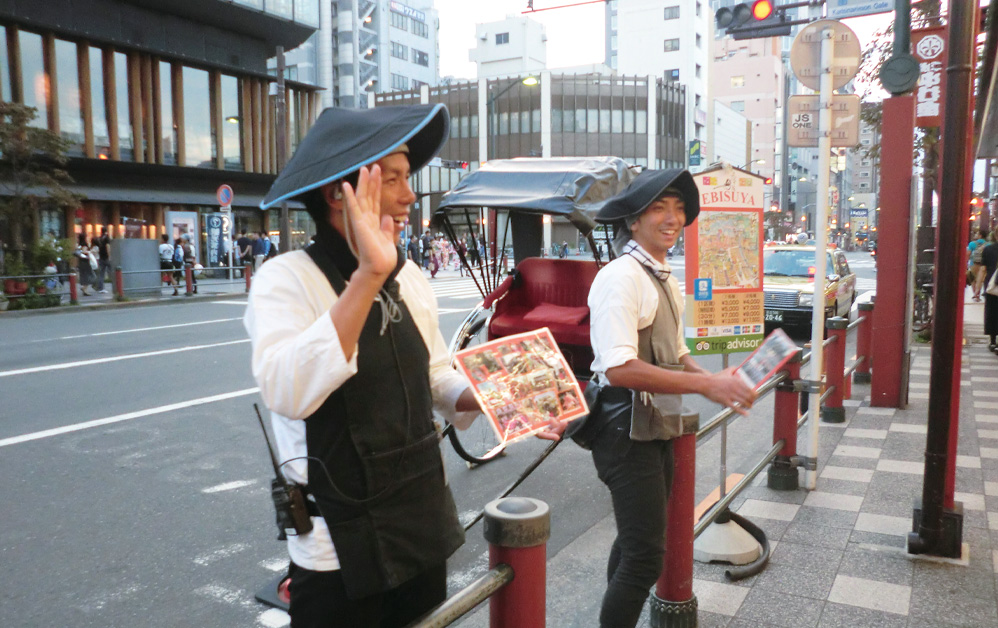
 social media accounts
social media accounts
Tokyo, a city that is accessible everywhere to anyone.
Sightseeing where you wish, as you wish.
This ability to travel anywhere you please makes life that much richer.
Tokyo welcomes your visit.
Here you can encounter tradition,
history, culture, nature, technology,
and, best of all, smiling faces.
Making tourism closer and more
enjoyable through accessible tourism.



